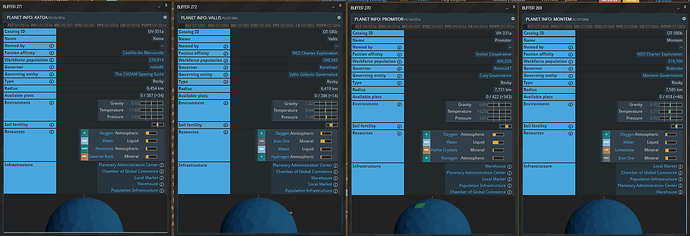Problem: The planets are full. This sucks for new players as they will never be able to get a base on many of the major worlds. This is a big dis-advantage compared to older players like myself who were able to colonize these worlds before they became full. Ghost plots were a band-aid solution - but I fear after we’ve had time to let this marinate, it has it’s own unintended 2nd order effects.
It’s simply veterancy within the rules and the age of the universe that prevents new players from participating. I had a conversation with someone (hi Zuul!) where this clicked - I just told them what I did, make NS on Montem and ship it to Promitor to run my HYF. This person told me they cannot do that because both planets are forever full. That will never be an option for them to participate in, and because of its efficiency, new players will be handicapped by the inability. It sucks to learn you can’t do this awesome thing because you joined the game too late.
The plot system needs to be completely removed, or at least, a complete rework to make the game fair for new people. Maybe it will be an intentional decision to have this kind of scarcity - but new players are unable to put a base on these prime worlds because of no fault of their own. And that feels kinda shitty for a new player.
Solution 1: What can be done in this universe, now, is basically just remove the plot system entirely. That’s about it.
Solution 2: Since we’re here and I have a soap-box. There are some better ways to enact the intentions of the plot system, but in a more equitable way for all players. It boils down to one very simple item:
There are no plot limits. But - you can only colonize 5 faction worlds. Everything else must be outside of faction space.
Whether this number is 3 or 5 or 10 I don’t know. It could be a fixed value, or, it’s upgradable just like the current permit system. You could separate it to different factions as well, limiting you to 3 bases per faction would be a great way to diminish the economic weight of Moria and more equally distribute the economy through the verse. And there are many other systems which could be built ontop to make more unlocks, simulate more progression. And it solves the plot problem as described above.
That’s all thanks for coming to my Ted talk ![]()
